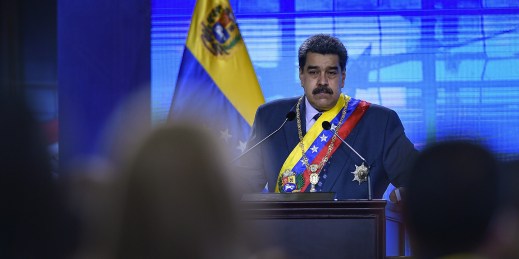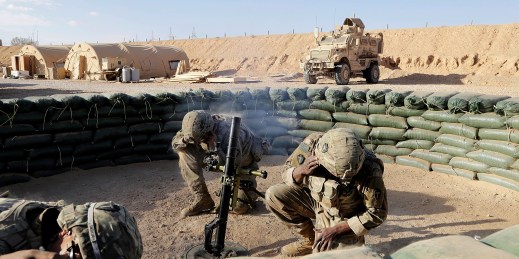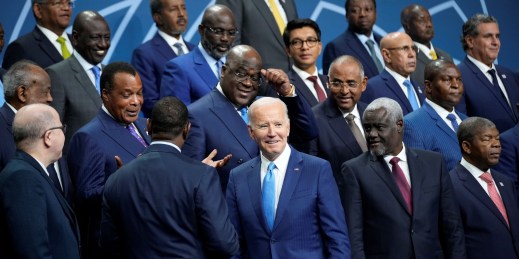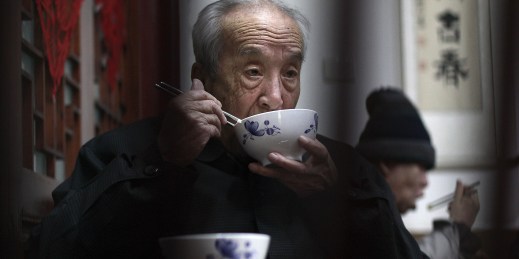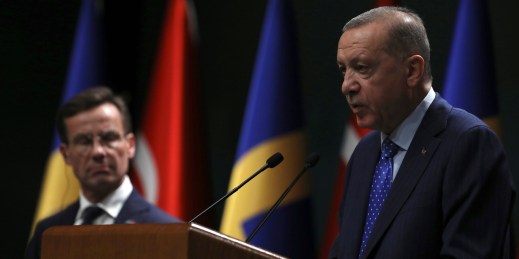Latest Archive
Free Newsletter
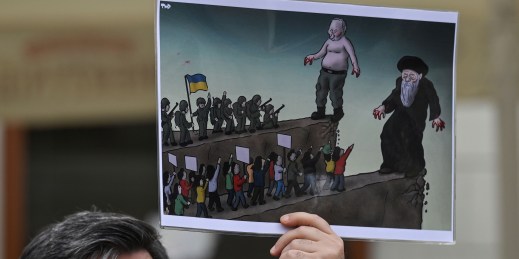
Whether Russia in Ukraine or Iran in the Middle East, authoritarian regimes flexing their military muscles can generate a sense of irresistible momentum that fuels anxiety among more open societies. Yet if one looks at how both these regimes are coping with social change, what initially seems unstoppable begins to look less ominous.
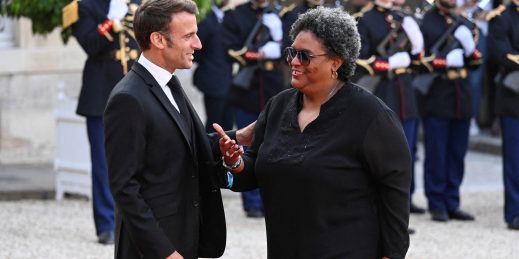
French President Emmanuel Macron has long called for a stronger and more sovereign Europe, in part by pursuing stronger partnerships with the Global South and reform of the international finance architecture. But those plans won’t be enough if major powers refuse to cooperate or negotiate in good faith with Global South countries.
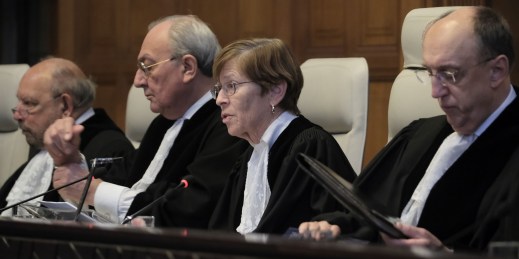
The ICJ’s middle-ground provisional ruling on whether Israel may be committing genocide in Gaza was not surprising given the specific difficulties of proving genocide. Still, to point out that the ruling falls short of what either party might have wanted would be to miss its wider implications that go far beyond the Gaza conflict.
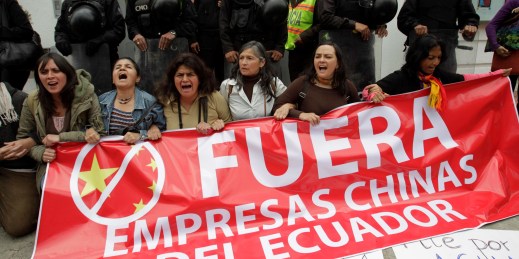
The Ecuador-China Free Trade Agreement has often been portrayed as a milestone for China in Latin America, but recent developments have thrown the fate of the deal into doubt. The sudden uncertainty has implications that extend beyond Ecuador’s borders, affecting the broader landscape of China’s relations across Latin America.
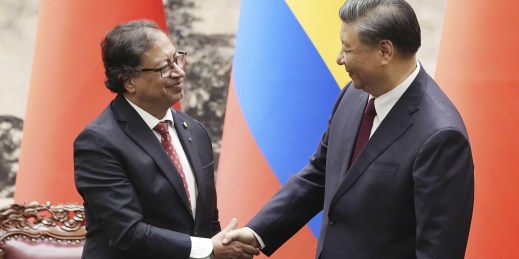
China’s expanding economic footprint in Latin America over the past 25 years has driven economic growth and shifted the geopolitical narrative across the region. But that engagement is now shifting as priorities change in China, Latin America and the U.S., at a time when Chinese growth is slowing and U.S.-China tensions are rising.
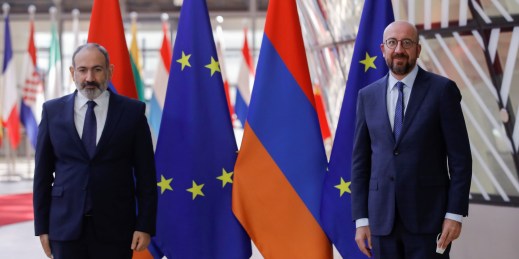
Russia’s role in allowing Azerbaijan to conduct its final invasion on Nagorno-Karabakh last year, despite its peacekeeping role there, has sparked a profound sense of betrayal in Armenia. That in turn has created an opportunity for the EU to forge stronger ties with Yerevan and reshape the geopolitical orientation of the South Caucasus.
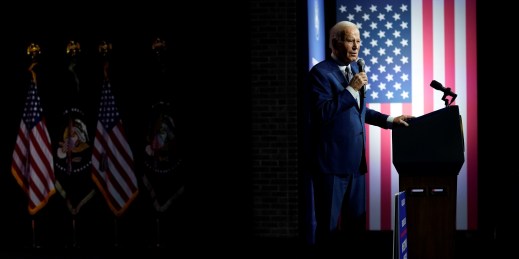
Is the United States’ era of global leadership over? From war to famine, the world is on fire and a lack of political will on the part of Washington is being blamed. But rather than demonstrating a lack of will, U.S. President Joe Biden can be seen as a savvy grand strategist who recognizes the new limits of U.S. power.
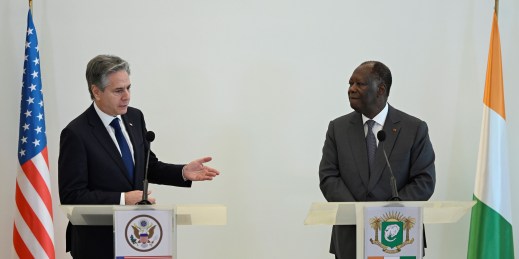
As part of his tour through four African countries this week, U.S. Secretary of State Antony Blinken made a point of stopping over in Cote d’Ivoire, a country with which both Washington and Paris are seeking to deepen security ties following the collapse of France’s diplomatic relations in other parts of the region.
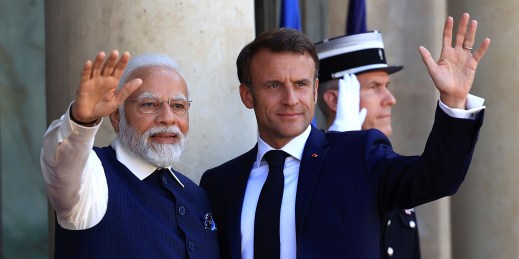
France and India have for decades developed a strong partnership grounded in strategic affinities and a shared preference for a multipolar international order. Though the U.S. has tended to be rather suspicious of this relationship, it should reconsider its view, as it actually serves Washington’s broader interests.
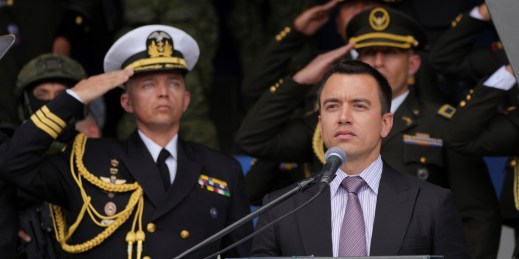
Ecuador’s grave security crisis could prove pivotal for the future of the country’s democracy. Similar crises across Latin American have created the temptation to toss out democracy as the cost of regaining security, as has been on most prominent display in El Salvador. For Ecuador, the stakes for could not be higher.
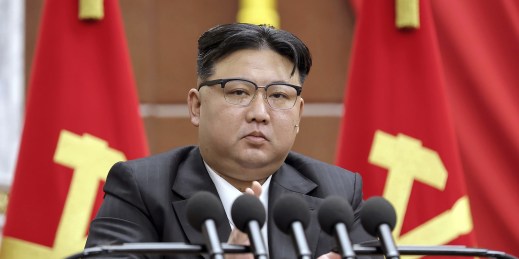
North Korean leader Kim Jong Un has abandoned the country’s long-standing policy of seeking peaceful unification with the South. This substantial change in Pyongyang’s inter-Korean policy should not be regarded as mere bluster or rhetoric. It marks a significant and dangerous shift in North Korea’s posture toward the South.


